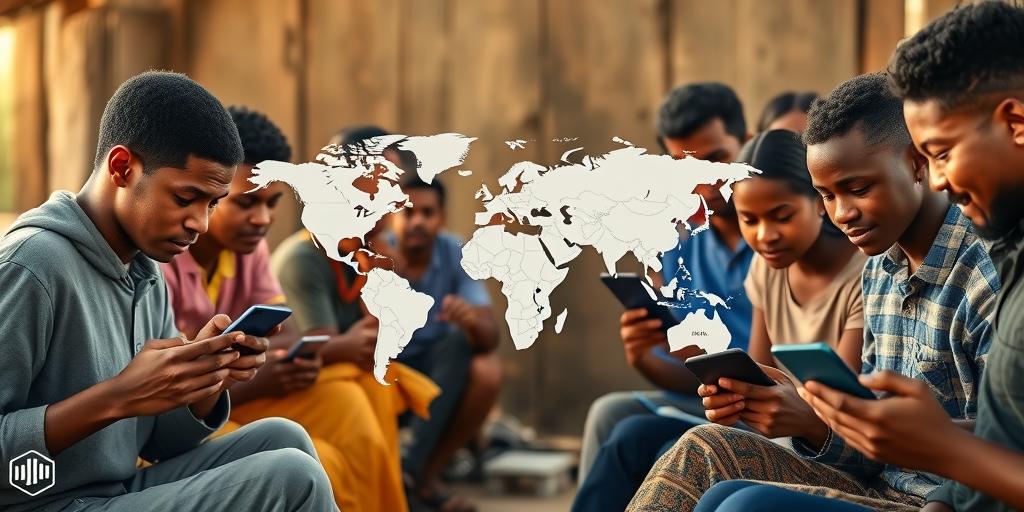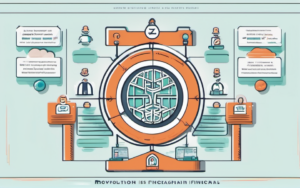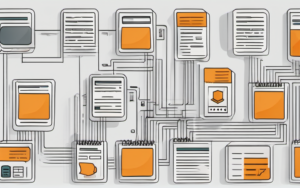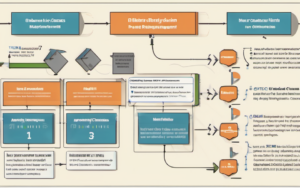The transformative potential of blockchain projects is increasingly recognized, particularly in developing countries grappling with systemic challenges. Its decentralized nature offers unique solutions to problems that traditional systems struggle to address, paving the way for inclusive growth and sustainable development. This exploration delves into the diverse ways blockchain technology is making a tangible difference.
1. Introduction
1.1 The Potential of Blockchain in Developing Nations
Blockchain technology, with its inherent transparency and immutability, holds immense potential for developing nations. Its decentralized architecture eliminates the need for intermediaries, reducing transaction costs and increasing efficiency across various sectors. This is particularly crucial in regions with limited access to traditional financial institutions or reliable infrastructure. The potential for economic empowerment and social progress through blockchain is enormous, driving innovation and fostering inclusive growth.
Unlike centralized systems, blockchain offers a level playing field, empowering marginalized communities and fostering economic resilience. This equitable access to resources and opportunities is crucial for sustainable development.
1.2 Addressing Challenges Through Decentralized Technology
Many developing countries face significant hurdles in areas like healthcare, finance, and governance. Centralized systems often lack transparency, leading to corruption, inefficiency, and inequality. Blockchain projects offer a powerful alternative, enabling secure and transparent transactions, enhancing accountability, and fostering trust. By bypassing intermediaries and establishing a verifiable record of transactions, blockchain empowers individuals and communities, promoting self-sufficiency and economic growth. This decentralized approach is key to addressing persistent challenges and building more resilient societies.
2. Improving Supply Chain Transparency and Efficiency
2.1 Tracking Goods from Origin to Consumer
Blockchain’s ability to track goods throughout their journey offers unprecedented transparency in supply chains. This is especially vital in developing countries where counterfeit goods and inefficient distribution networks are prevalent. By recording each step of the process on an immutable ledger, blockchain ensures traceability, reducing fraud and improving quality control. For instance, tracking agricultural products from farm to market helps ensure fair pricing and prevents exploitation of farmers.
This enhanced traceability allows consumers to make informed choices, supporting businesses that prioritize ethical and sustainable practices. Furthermore, it enables better inventory management and reduces waste, leading to improved efficiency and economic benefits.
2.2 Enhancing Food Security and Reducing Waste
Blockchain offers a powerful solution to food insecurity and waste in developing nations. Tracking perishable goods throughout the supply chain allows for better inventory management, reducing spoilage and improving distribution efficiency. This is particularly important for food-insecure regions where access to nutritious food is limited. Furthermore, blockchain can help verify the origin and quality of food products, ensuring consumers receive safe and reliable goods.
Blockchain’s ability to track and trace food items aids in combating food fraud and contamination, enhancing food safety standards. This contributes to improved public health and economic stability within communities.
2.3 Empowering Smallholder Farmers
Smallholder farmers in developing countries often face challenges accessing fair markets and receiving adequate compensation for their produce. Blockchain can empower them by providing transparent and traceable records of their transactions, ensuring they receive fair prices and preventing exploitation. By connecting farmers directly with buyers, blockchain streamlines the supply chain, reducing costs and increasing efficiency. This direct connection facilitates better market access for smallholder farmers, supporting their livelihoods and contributing to sustainable agriculture.
This improved market access is a critical step towards achieving food security and supporting rural development initiatives.
3. Expanding Access to Financial Services
3.1 Mobile Money and Microfinance Initiatives
Blockchain technology is revolutionizing access to financial services in underserved communities, especially through mobile money and microfinance initiatives. Decentralized platforms allow individuals without traditional bank accounts to access financial services, such as loans, payments, and savings. This increased financial inclusion empowers individuals and stimulates economic growth, reducing reliance on informal and often exploitative financial practices.
Mobile money platforms leveraging blockchain are transforming how individuals manage their finances, fostering greater financial literacy and economic stability.
3.2 Decentralized Lending Platforms
Decentralized lending platforms built on blockchain technology offer a secure and transparent alternative to traditional lending institutions. These platforms reduce the need for intermediaries, lowering costs and making credit more accessible to individuals and small businesses in developing countries. This improved access to capital stimulates entrepreneurship and economic growth, creating employment opportunities and fostering sustainable development.
The transparency offered by blockchain reduces the risk of fraud and enhances trust between borrowers and lenders, thereby fostering a more robust financial ecosystem.
3.3 Promoting Financial Inclusion
Blockchain’s capacity to expand financial inclusion is transformative for developing economies. By providing secure and accessible financial services to previously unbanked populations, blockchain empowers individuals, businesses, and communities. This empowerment fosters economic growth, reduces poverty, and enhances social mobility, leading to a more inclusive and equitable society. The ability of blockchain to operate efficiently even in areas with limited infrastructure makes it a powerful tool for bridging the financial inclusion gap. It offers opportunities for individuals and businesses to participate more fully in the global economy.
4. Strengthening Governance and Identity Management
4.1 Secure Digital Identity Solutions
Secure digital identity solutions based on blockchain technology can address the challenges of identity theft and fraud in developing countries. By providing verifiable and tamper-proof digital identities, blockchain enhances security and trust, facilitating access to various services like healthcare, education, and financial services. This secure identity management is critical for establishing trust and ensuring accountability across various sectors.
This secure digital identity infrastructure also supports efficient government services and reduces bureaucratic inefficiencies.
4.2 Enhancing Transparency in Government Processes
Blockchain’s immutable ledger can increase transparency and accountability in government processes. By recording all transactions and decisions on a public ledger, blockchain reduces opportunities for corruption and fraud. This increased transparency fosters trust in government institutions, enhances citizen participation, and promotes good governance. The open and auditable nature of blockchain promotes accountability and helps prevent misuse of public resources.
This enhanced transparency builds trust and strengthens the relationship between citizens and their government.
4.3 Combating Corruption and Fraud
Blockchain’s transparency and immutability are powerful tools in combating corruption and fraud in government and other sectors. By providing a verifiable record of transactions, blockchain helps prevent embezzlement, bribery, and other fraudulent activities. This increased accountability fosters a more just and equitable society. The ability to track funds and assets transparently is a significant step towards strengthening good governance and fostering public trust. This enhanced transparency and accountability reduces risks and promotes sustainable development.
5. Revolutionizing Healthcare Systems
5.1 Secure and Accessible Medical Records
Blockchain technology offers a secure and accessible way to manage medical records in developing countries. By storing medical data on an immutable ledger, blockchain ensures the confidentiality and integrity of patient information. This improved data security enhances patient trust and facilitates better healthcare delivery, particularly in regions with weak healthcare infrastructure. This secure platform also ensures patient control over their data.
The decentralized nature of blockchain protects against data breaches and unauthorized access, thus respecting patient privacy.
5.2 Improving Drug Supply Chain Management
Blockchain can significantly improve the management of the drug supply chain in developing countries, helping to combat the issue of counterfeit medications. By tracking drugs from manufacturer to patient, blockchain ensures authenticity and reduces the risk of counterfeit drugs entering the market. This improved traceability protects public health and enhances the effectiveness of healthcare interventions. The secure tracking ensures the safe and effective delivery of medicines.
This also improves supply chain efficiency by providing real-time visibility into stock levels and distribution patterns.
5.3 Facilitating Telemedicine and Remote Healthcare
Blockchain can facilitate the delivery of telemedicine and remote healthcare services in areas with limited access to healthcare facilities. By enabling secure communication and data sharing between patients and healthcare providers, blockchain ensures better access to quality healthcare. This is particularly important for remote and underserved populations, improving healthcare outcomes and promoting health equity. The secure platform also protects sensitive patient data during transmission.
This increased access to healthcare improves health outcomes and strengthens community resilience.
6. Empowering Education and Skills Development
6.1 Verifying Educational Credentials
Blockchain technology can help verify educational credentials, making it easier for individuals to demonstrate their qualifications to potential employers. This is especially important in developing countries where counterfeit certificates are common. By storing educational records on an immutable ledger, blockchain ensures the authenticity and integrity of credentials, enhancing trust and facilitating access to better employment opportunities.
This verifiable system improves transparency and efficiency in the education sector.
6.2 Creating Decentralized Learning Platforms
Blockchain can be used to create decentralized learning platforms that provide access to educational resources for individuals in developing countries. These platforms can offer courses, training programs, and other learning materials, increasing access to education and skills development. This decentralized approach fosters greater inclusivity and enables participation from remote and underserved communities.
This accessibility empowers individuals to improve their skills and increase their earning potential.
6.3 Providing Access to Educational Resources
Blockchain can facilitate access to educational resources in developing countries by creating a decentralized network for sharing knowledge and learning materials. This enables educators and learners to connect and collaborate more effectively, fostering innovation and improving the quality of education. This access to diverse learning materials enhances educational opportunities for students in underserved areas.
This improved access to educational resources contributes to human capital development and drives economic growth.
7. Challenges and Considerations
7.1 Infrastructure Limitations
One significant challenge in implementing blockchain projects in developing countries is the limitation of robust internet infrastructure. Limited connectivity and access to technology can hinder the adoption and effective implementation of blockchain solutions. Addressing these infrastructure limitations is crucial for successful deployment of blockchain-based projects. This requires investment in improving digital infrastructure and expanding internet access.
Addressing these challenges is paramount for wide-scale adoption and realizing the full potential of blockchain.
7.2 Digital Literacy and Adoption
Lack of digital literacy and awareness among the population can pose a significant barrier to the successful adoption of blockchain technology. Educating individuals and communities about blockchain’s benefits and functionalities is essential for fostering widespread acceptance and ensuring effective utilization. Comprehensive digital literacy programs are needed to empower communities and bridge the digital divide.
This widespread education and training are essential for maximizing the impact of blockchain initiatives.
7.3 Regulatory Frameworks and Governance
The absence of clear regulatory frameworks and governance structures surrounding blockchain technology can hinder its adoption in developing countries. Establishing appropriate regulatory frameworks that promote innovation while mitigating risks is crucial for building trust and fostering sustainable growth. Robust regulatory frameworks must be developed collaboratively with all stakeholders to ensure responsible innovation. This collaborative effort is crucial for responsible innovation and sustainable development.
These well-defined frameworks will ensure the secure and effective implementation of blockchain projects.
The future of blockchain in development is bright, with continued innovation and collaboration promising even greater impact. Organizations, governments, and communities must work together to address the challenges and unlock the transformative potential of blockchain technology for sustainable development in developing countries. Through collaborative efforts and strategic investments, we can harness the power of blockchain to build more equitable, resilient, and prosperous societies.




